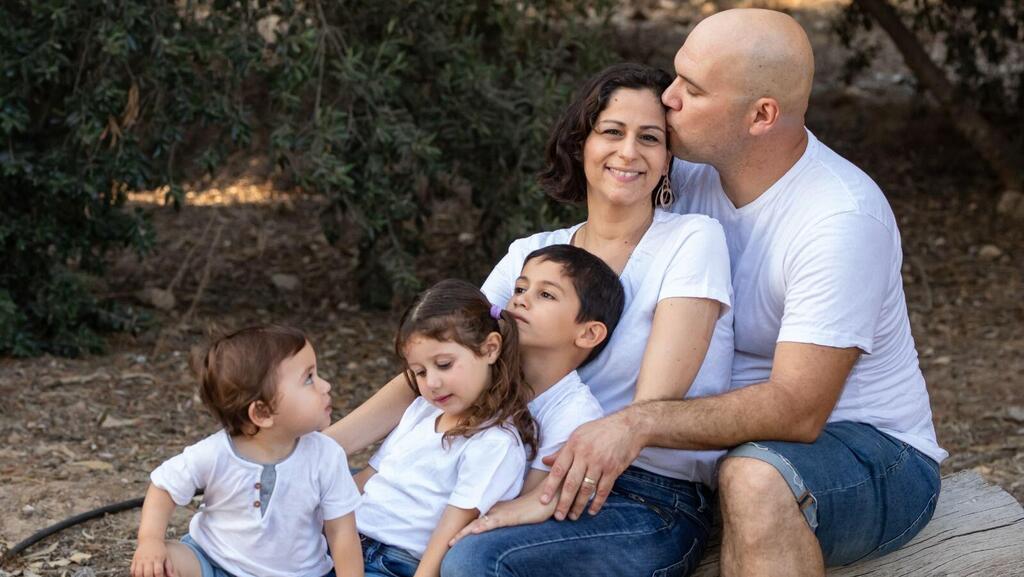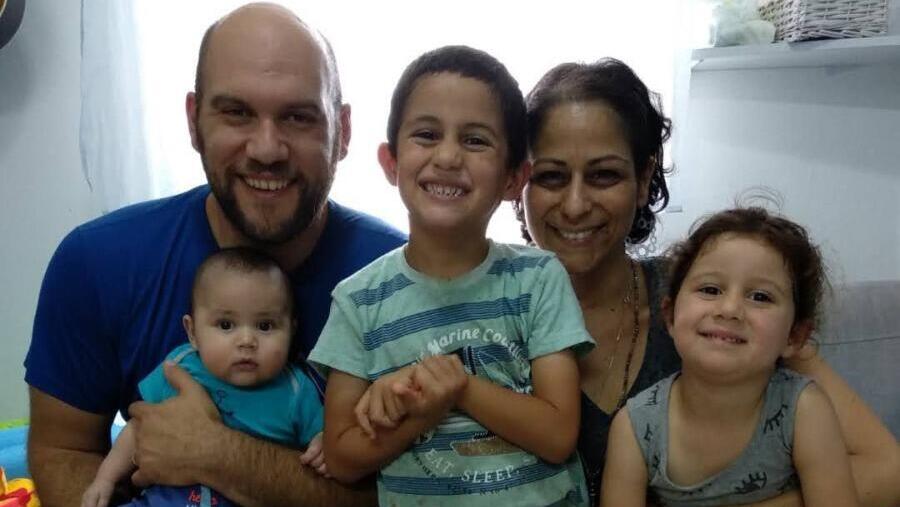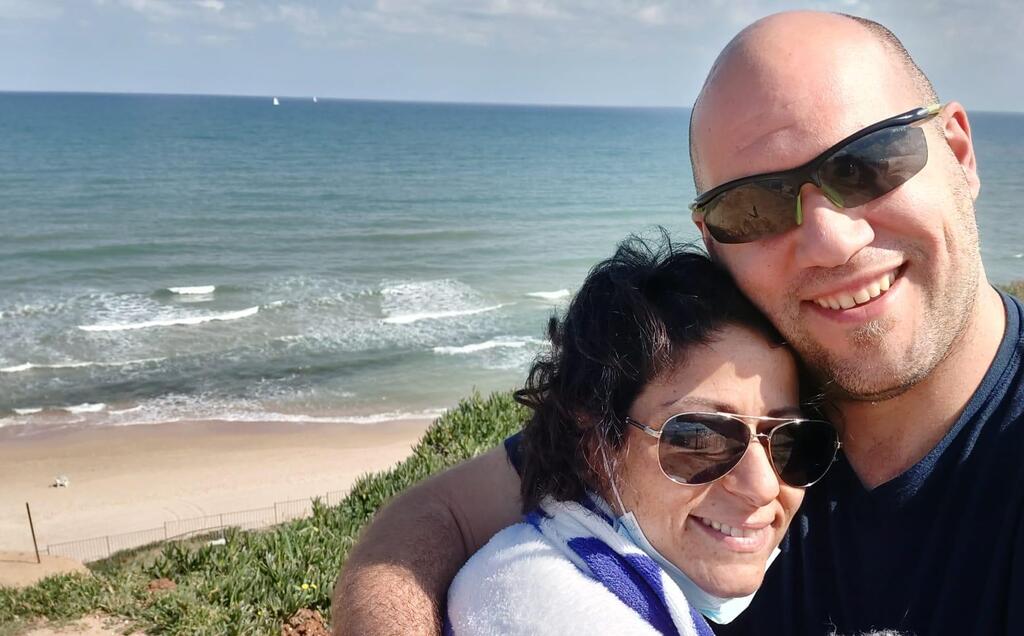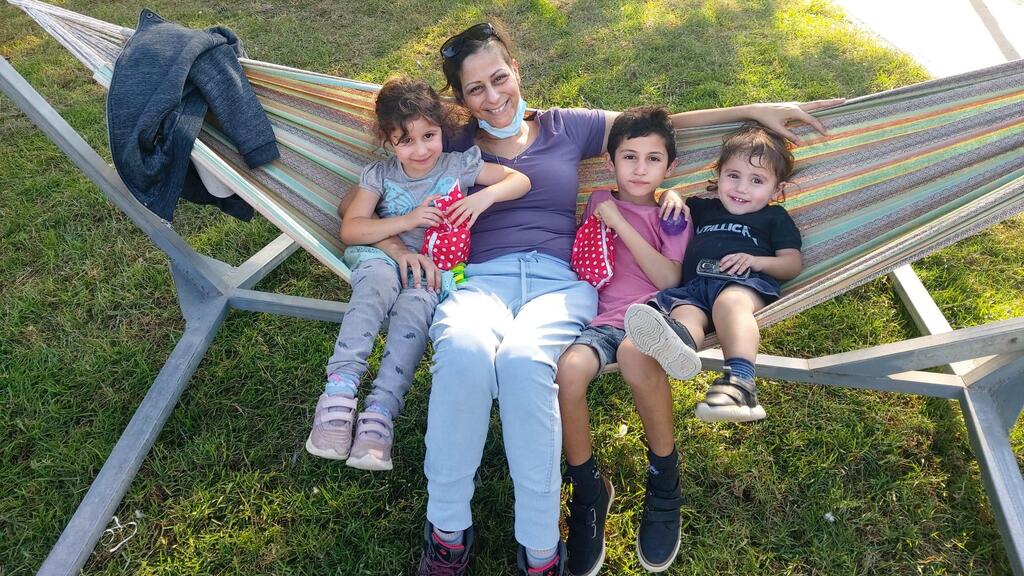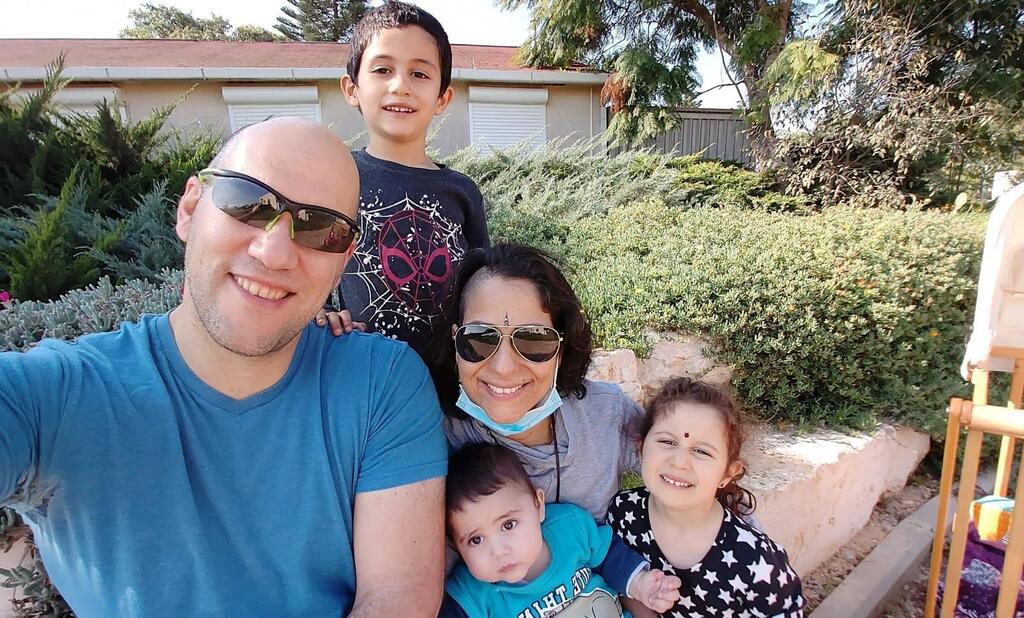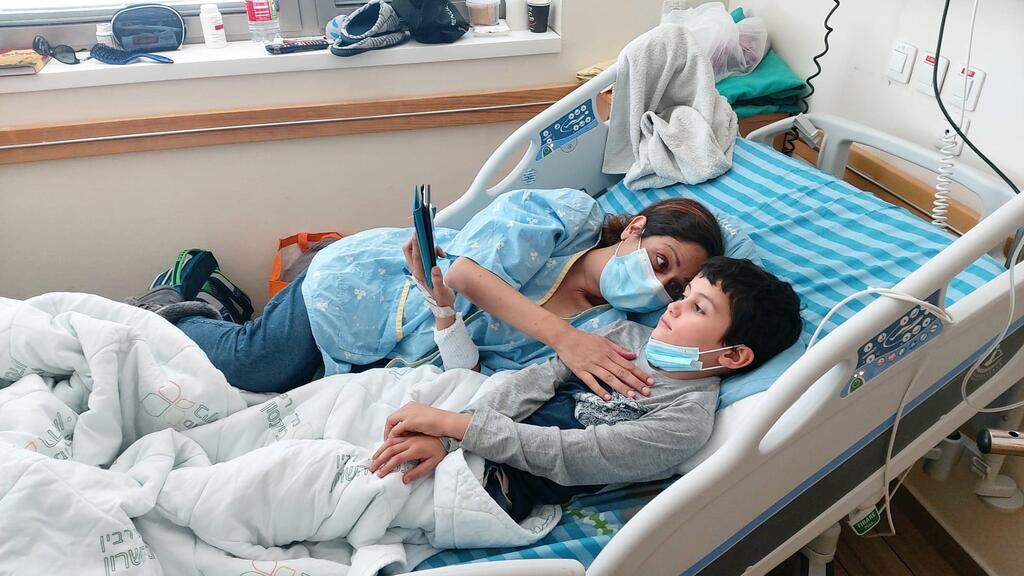Adi Shachar Gebzo (42) was informed she had cancer three times. Her first diagnosis was when she was only 23 years old and after two years, she was informed that her disease returned. The third time she received the devastating news was during her pregnancy with her third child. This time, the cancer had spread and she has become terminally ill.
"At the age of 20, I worked to save money, went abroad on a long post-military service trip and felt invincible," she says adding that cancer was the last thing on her mind. "Then came the diagnosis that I had cancer in my thyroid gland. I had an operation to remove half of the gland, and a year later, doctors removed the other half. I was naive and followed the doctors' advice, handling my condition like a hero."
Gebzo, who is married and is the mother of three children aged 8, 6, and 3, talks to Ynet from her hospital bed where she is being treated for a bacterial infection in her blood. She is currently waiting for a test to show whether the treatments she has been getting have been helping, or if she must "take a different course," as she puts it.
Years after she recovered from thyroid cancer, Gebso was diagnosed with a malignancy in her breasts. "I had a suspicious spot, and they removed 21 lymph nodes from my armpit," she says. "I received treatments and complimented them with traditional Chinese medicine, which reduced about 60-70% of the side effects." In fact, that led her to give up her job and study Chinese medicine.
Even during periods of illness, Gebzo remained active and energetic. Among other things, she organized two charity events that raised funds for trips abroad for recovering patients. She continued to be the life of the party, among her friends.
"After breast cancer, I was completely healthy for 12-13 years, I didn't even take Advil, Gezbo says. "I was living the dream. I met Tal, and we moved kibbutz where he grew up. We had two children because I fought to become a mother after the oncologist cautioned me against it."
She remembers how hard it was when her doctors said: "You want to be a mother, and this is a free country, but your child will bury you when he or she is one year old because you will die." That almost broke her and she barely left her home for three months after those words.
During the ninth week of her third pregnancy, Gezbo began to feel intense pain in her pelvic area. "It was the beginning of the COVID pandemic, we were all at home. The pain was severe, I couldn't walk straight, I couldn't even sleep, she says. "I, who treated others and didn't even take a pill for a headache, found myself writhing in pain. They told me it was pelvic expansion, which happens during pregnancy."
But despite the pandemic, Gezbo's doctor referred her to a specialist who administered an MRI. "The doctor called me and informed me that there were nodules in the lymph nodes and liver," she says. the cancer was back. "I was hospitalized in the maternity ward ... had a cesarean to deliver the baby but the operation continued for another four hours."
"The oncologist said to me, in these words, "You want to be a mother, and this is a free country, but your child will bury you when he is one year old because you will die.' For three months, I didn't leave the house, I was broken."
Naveh, Gizbo's third son, spent the first weeks of his life at his grandparents' house. "I wasn't allowed to see him, I only breastfed him once," she says. "Two days after the surgery, the oncologist entered the room to take a piece of my bone. I looked at him and said, 'We both know that I'm about to die, so why cause me more suffering?'"
How did you respond? What did you feel?
"I realized that the situation was not good. I understood that my disease was at stage four, and there was no going back from there. The goal was to prolong my life. It's difficult, it came during pregnancy, with the hormones, with children at home, with a relatively young relationship. I got used to closing the clinic at noon and spending the rest of the day with the kids. I dedicated all my time to them, without a phone or anything. Today, it's just Dad or a babysitter. I knew that hell would break loose after giving birth.
"I felt like I was going to leave my children, and a mother worrying about her children is terrible. What, they'll remember a sick mom? A few days ago, I got a call from the daycare to tell me that my son has a virus. "He told me that his sister doesn't feel well either, and when I asked about mommy, he answered, 'Mommy is always sick'."
"I also decided to prepare boxes for them with mementos like the birth bracelet, the first outfit, the first blanket, and also letters from me, for every occasion - bar/bat mitzvahs, weddings. I haven't finished yet. I am also writing a journal for them, I try. It hurts me to write. I can type, but I want it to be in my own handwriting. I try to document every moment. I post live feeds on Facebook so that they will be able to see what their mom went through. For three years now, I've been asking when my hourglass will run out."
What do the children know about the disease, and what are they experiencing?
"I try not to hide anything, but rather to explain everything and answer all their questions. I think they are suppressing it, but they are with me, and they see everything."
"I decided to prepare boxes for them with their belongings, like the birth bracelet, the first outfit, the first blanket, and also letters from me, for every occasion - bar/bat mitzvahs, weddings. I haven't finished yet. I try to document every moment. For three years now, I've been asking when my hourglass will run out."
What do you wish upon your children today?
"I want to be a maternal figure for them, but that it will be me. They deserve it, and I deserve it. I have worked hard to build the family I have today. I want them to have memories of me, for them to grow up and know my story. I want them to be good people, to fulfill themselves, to be unstoppable, and to know that we love them no matter what. I want them to make mistakes and learn from them. I want so much to be the soft and maternal side they need, and I'm not ready for them to lose their mother so soon. It saddens me that they are growing up in the shadow of this disease. I want to tell them: my children, maybe soon I won't be with you, but I will always be with you."
What scares you?
"What scares me is leaving the children. Not being with Meitar when she gets her first period, or when she gets married, and not being with Ofek during his first heartbreak. Sometimes I worry about the different parenting methods that Tal and I have because he is an amazing father, but he's not a mother. I'm scared of feeling pain, of my children hurting and not having their mother."
And what do you dream of?
"I dream of holding Tal's hand when we're old and seeing our children and grandchildren together. I dream of being with Meitar in the delivery room, being there for their IDF recruitment, and being at their weddings. I dare to dream far."


